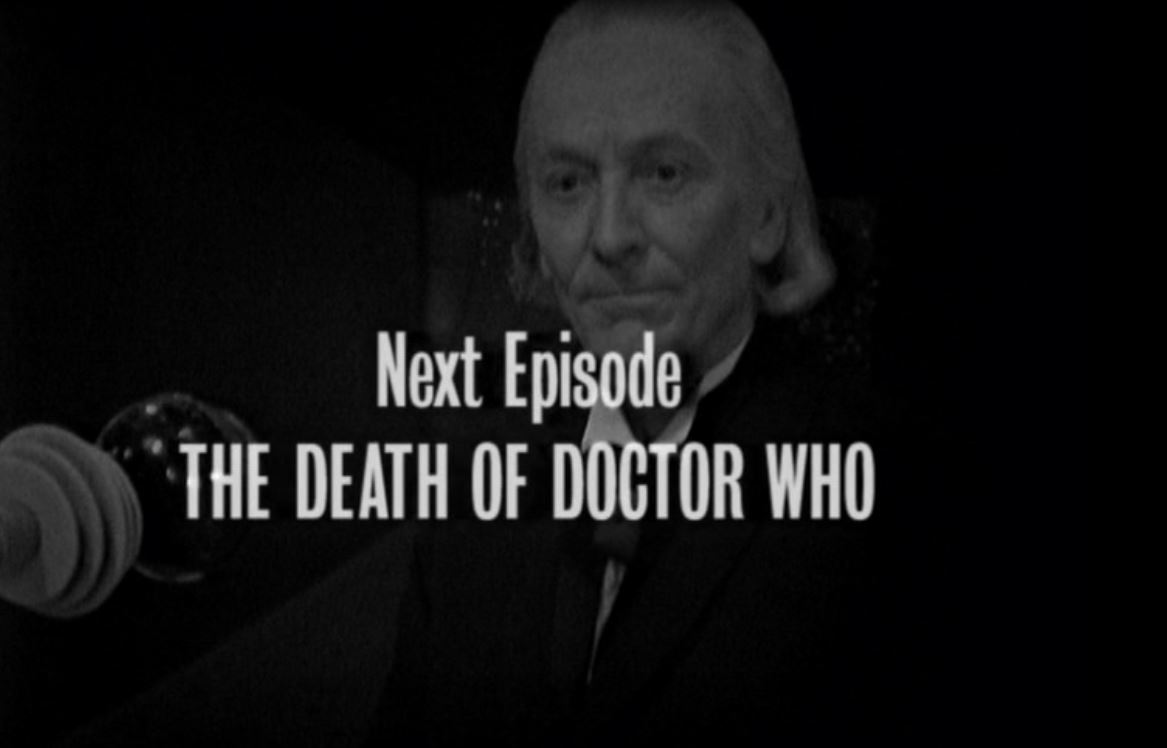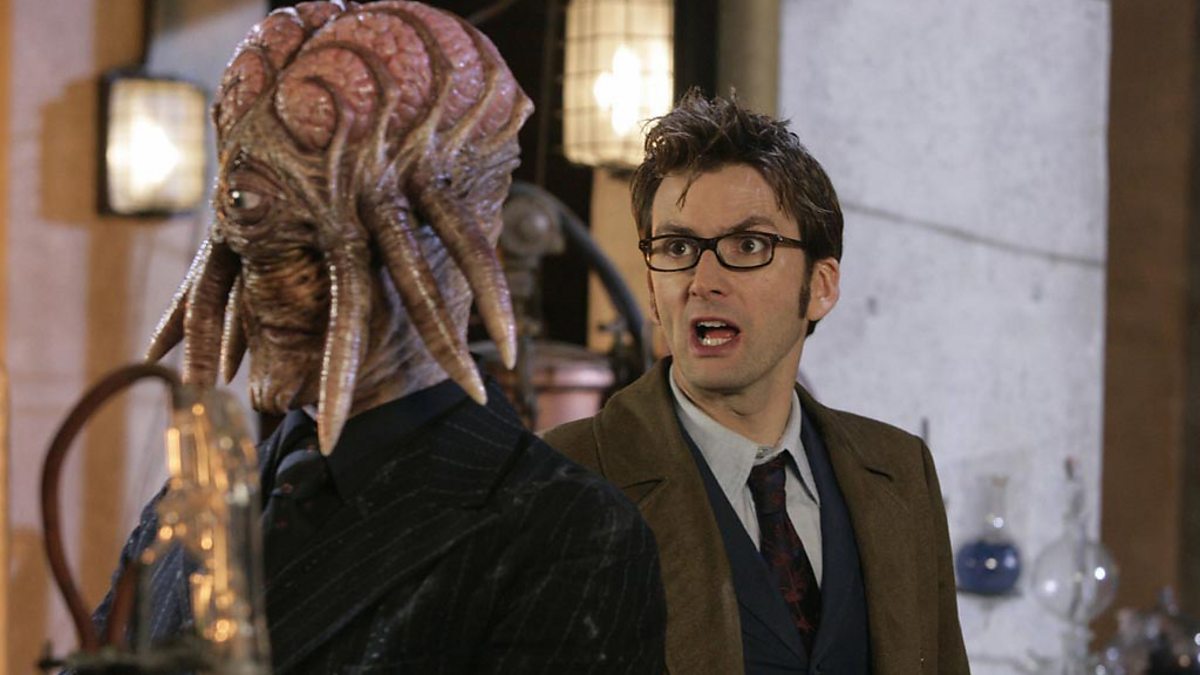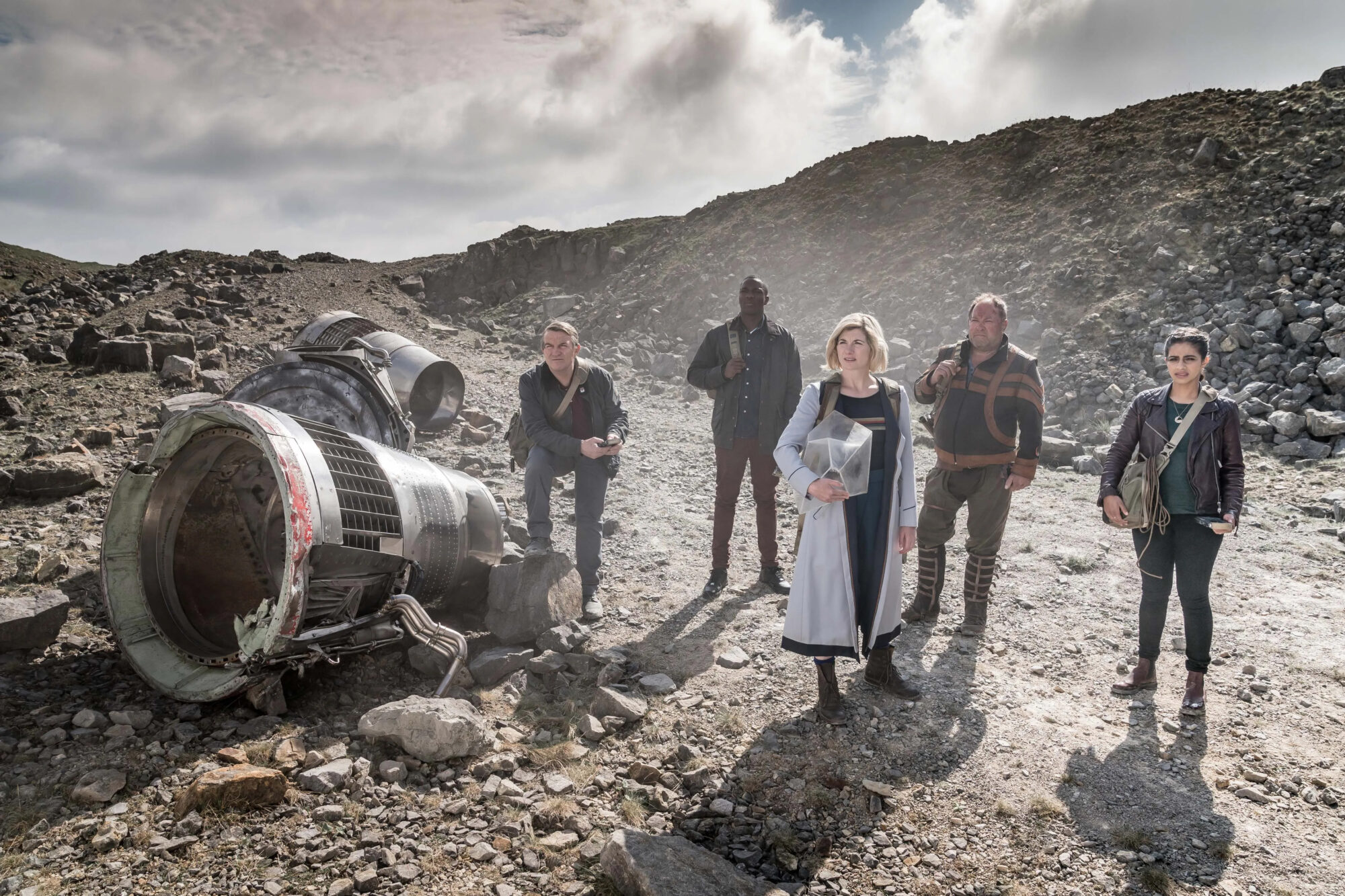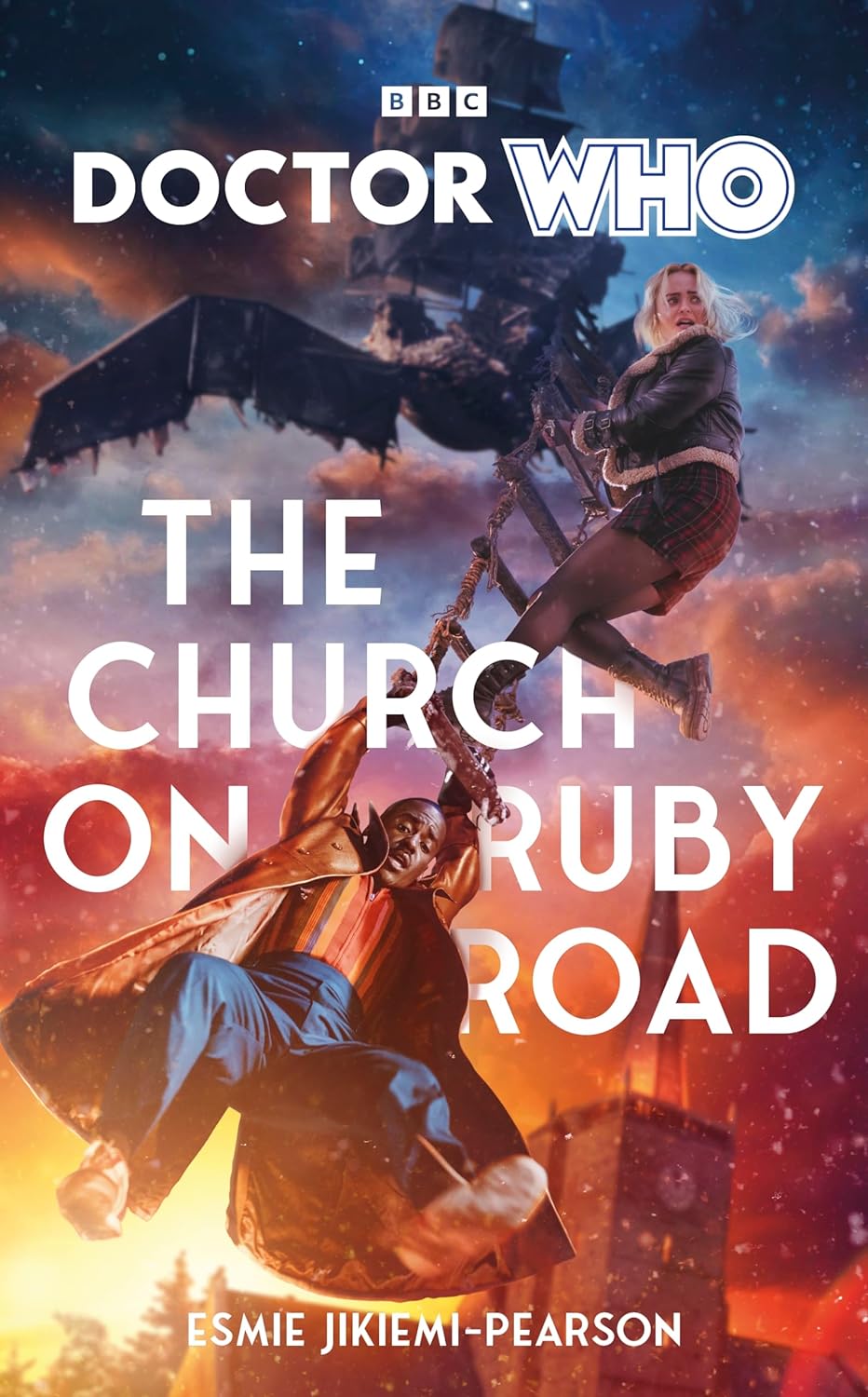What’s in a name, as someone once asked. There have been many Doctor Who episode titles over the years, from the horrific to the hilarious. Which are the best, and is there an art to creating a good Doctor Who episode title?

In the revamped Doctor Who series which began in 2005, it became customary for each episode to finish with a ‘next time’ trailer, teasing the next week’s instalment and incentivising the audience to reserve their spot behind the sofa.
But in the early 60s, it was the Doctor Who episode titles themselves which served as trailers. After the cliffhanger, a caption would appear reading ‘Next episode: [insert title here.]’ This was at a time when each individual episode had its own name, rather than an overarching serial title followed by a ‘part one’ or an ‘episode two,’ and so on.
And some of these were quite exotic. The 1964 serial ‘Marco Polo‘ must surely win the award for some of the most exciting and creative titles in the Whoniverse, with ‘The Singing Sands,’ ‘Five Hundred Eyes’ and ‘The Wall of Lies’ making up just a few episodes of this seven-part epic. And they were clearly effective in drawing the viewers in; ‘Marco Polo’ achieved a steady audience of 9.4 million in its early episodes, rising to 9.9 and finally to 10.4.

Moreover, it was the William Hartnell era that introduced the classic ‘of death’ convention in its Doctor Who episode titles. Although cliched to some, these Doctor Who episode titles are nothing if not dramatic, and do exactly what they say on the tin. Who could fail to be intrigued by ‘The Sea of Death,’ ‘Sentence of Death,’ ‘The Warriors of Death, ‘or even the ‘Priest of Death.’ Interestingly, it wasn’t until 1969 that an entire Doctor Who story was afforded such a title, with the Second Doctor’s ‘The Seeds of Death’ landing in Patrick Troughton’s final season.
And as striking as such Doctor Who episode titles are, they are actually few and far between in the Whonivese. In fact, the only other stories to follow this convention are ‘The Ambassadors of Death,’ ‘The Robots of Death’ and ‘City of Death.’ And out of all of these, ‘Ambassadors’ must surely have made the most of its title, introducing the captions with a dramatic ‘sting’ during the opening credits.
Intriguingly, there hasn’t been a single Doctor Who episode since 1979 to use the ‘of death’ naming convention. But there have been many ‘ofs,’ and these are surely a staple of any good Doctor Who episode title, particularly when it comes to a returning villain like the Daleks. Our DVD shelves would be all-the-poorer without ‘Evolution of the Daleks’ or ‘Revolution of the Daleks,’ or even ‘Remembrance of the Daleks‘ or ‘Revelation of the Daleks.’

At the same time, there have been many Dalek stories which have worked hard to keep the appearance of the metal mutants a secret. Russell T Davies was particularly good at this during his first tenure on the show, and often used Doctor Who episode titles which were more character-based than traditionally ‘sci-fi’-sounding. For example, Series One’s epic finale was named ‘The Parting of the Ways,’ and the Series Four finale (perhaps one of the most ambitious showdowns in the whole of Whodom) was simply titled ‘Journey’s End.’
But there is a lot to be said for simplicity, and again, this is something that Russell T Davies has often favoured. When he relaunched the show in 2005, he could quite easily and justifiably have named the first episode something like ‘The Rise of the Nestenes’ or ‘The Mannequins of Death,’ but he opted for the much simpler ‘Rose.’ After all, this was her story. The episode was about the character and her journey; the Autons, in a sense, were a secondary concern. And few people were going to be scratching their heads over a Doctor Who episode title like ‘Rose.’
That being said, there have been some Doctor Who episode titles which have worked hard to confuddle their audiences. Episodes like ‘World Enough and Time’ and ‘Twice Upon a Time‘ don’t land quite as powerfully as ‘Dinosaurs on a Spaceship,’ because they’re deliberately ambiguous. They’re teasing the viewer to come and find out what the title actually means. (Although, arguably, one could reach the end of ‘World Enough and Time’ and still not understand why Steven Moffat named it the way he did!)
Certainly, this was a technique that Chris Chibnall employed during his time on the show. But Chibnall was ‘next level’ with his Doctor Who episode titles, first challenging the viewer to figure out the pronunciation! Doctor Who episode titles like ‘The Tsuranga Conundrum’ and ‘The Battle of Ranskoor Av Kolos’ don’t exactly roll off the tongue, and will have caused many a furrowed brow when first broadcast. Even now, some fans are scratching their heads over the correct pronunciation of ‘The Haunting of Villa Diodati.’ Leave your opinion down below.

Does this mean that a writer shouldn’t invent some hard-to-read Doctor Who episode titles? Not necessarily. After all, a strange episode title does create a sense of enigma, and may well intrigue the viewer. But it is interesting to note that, in a recent edition of the gameshow Pointless, not one person out of the 100 surveyed contestants could remember a single Doctor Who episode title from the Jodie Whittaker era. So we may have to wait a few years for ‘The Battle of Ranskoor Av Kolos’ to truly enter the British zeitgeist.
And if your brain is starting to hurt, perhaps you should stick to the classic one word Doctor Who episode titles which the revamped series has done so well, such as ‘Blink,’ ‘Listen,’ ‘Smile,’ ‘Oxygen’ or even ‘Kerblam!’ The latter certainly should be recognised as the first Doctor Who episode title to incorporate an exclamation mark.
But over to you, reader. What do you think makes a good Doctor Who episode title? And which is your all-time favourite? Let us know in the comments below.










Probably not using “Doctor Who” in the titles, having more than five words (cramps the cover font) and using another title as a quote, eg Dalek Empire’s episode “Death to the Daleks!” makes fans happy and retailers less confused!